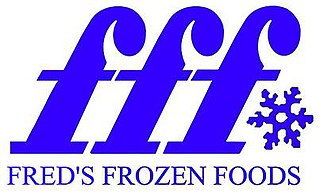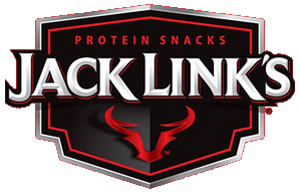Rendering is a process that converts waste animal tissue into stable, usable materials. Rendering can refer to any processing of animal products into more useful materials, or, more narrowly, to the rendering of whole animal fatty tissue into purified fats like lard or tallow. Rendering can be carried out on an industrial, farm, or kitchen scale. It can also be applied to non-animal products that are rendered down to pulp. The rendering process simultaneously dries the material and separates the fat from the bone and protein, yielding a fat commodity and a protein meal.

Tyson Foods, Inc. is an American multinational corporation based in Springdale, Arkansas that operates in the food industry. The company is the world's second-largest processor and marketer of chicken, beef, and pork after JBS S.A. It annually exports the largest percentage of beef out of the United States. Together with its subsidiaries, it operates major food brands, including Jimmy Dean, Hillshire Farm, Ball Park, Wright Brand, Aidells, and State Fair. Tyson Foods ranked No. 79 in the 2020 Fortune 500 list of the largest United States corporations by total revenue.

The meat-packing industry handles the slaughtering, processing, packaging, and distribution of meat from animals such as cattle, pigs, sheep and other livestock. Poultry is generally not included. This greater part of the entire meat industry is primarily focused on producing meat for human consumption, but it also yields a variety of by-products including hides, dried blood, protein meals such as meat & bone meal, and, through the process of rendering, fats.

JBS USA Holdings, Inc. is a meat processing company and a wholly owned subsidiary of the Brazilian multinational JBS S.A. The subsidiary was created when JBS entered the U.S. market in 2007 with its purchase of Swift & Company.
Smithfield Foods, Inc., is a pork producer and food-processing company based in Smithfield, Virginia. It operates as an independent subsidiary of the Chinese-owned conglomerate WH Group. Founded in 1936 as the Smithfield Packing Company by Joseph W. Luter and his son, the company is the largest pig and pork producer in the world. In addition to owning over 500 farms in the US, Smithfield contracts with another 2,000 independent farms around the country to raise Smithfield's pigs. Outside the US, the company has facilities in Mexico, Poland, Romania, Germany, Slovakia and the United Kingdom. Globally the company employed 50,200 in 2016 and reported an annual revenue of $14 billion. Its 973,000-square-foot meat-processing plant in Tar Heel, North Carolina, was said in 2000 to be the world's largest, slaughtering 32,000 pigs a day.

Premium Brands Holdings Corporation is a Canadian specialty food manufacturing and distribution company. It is a publicly traded corporation on the Toronto Stock Exchange.
John Tyson is an American billionaire heir and businessman. He was chief executive officer (CEO) of the family business, Tyson Foods, from 2000 to 2006, and has been chairman since 1998.

Wright Brand Foods, Inc. was a meat-packing company located in Vernon, Texas, that was eventually bought by the Tyson Foods corporation in 2001. Begun in 1922 by Egbert Eggleston, what eventually became a multimillion-dollar business started out in the back of a local grocery store.
Cargill Meat Solutions is a subsidiary of the Minneapolis-based multinational agribusiness giant Cargill Inc, that comprises Cargill's North American beef, turkey, food service and food distribution businesses. Cargill Meat Solutions' corporate office is located in Wichita, Kansas, United States. Jody Horner is the division's president.
Jordan's Meats was an American meat packing company based in Maine, with plants at one time in Augusta, Bangor, and Portland. Jordan's was one of the companies of Corporate Brand Foods America, purchased in 1997 by George N. Gillett Jr., then by Iowa Beef Processors (IBP) in January 2000. IBP closed the Bangor plant in September, 2001, and transferred production to the Portland plant. Tyson Foods acquired IBP in January 2000 and closed the company's remaining operations on February 1, 2005. There were 285 employees at the Portland plant and distribution center when it closed.
William Davies Company was a pork processing and packing company in Toronto, Ontario, Canada. At one time, it was the largest pork packer in the British Empire, and it operated Canada's first major chain of food stores. One of Toronto's longstanding nicknames, "Hogtown", is attributable to the millions of pigs processed annually by the William Davies Company.
Meat Products of India Ltd (MPI) is a major Indian meat processing, packaging, and distribution company based in Edayar, Koothattukulam in the district of Ernakulam, Kerala.

Fred's Frozen Foods and Fred's for Starters are frozen food brands that trace their origin to Fred Luker who first started manufacturing frozen meat and vegetable products in Noblesville, Indiana in 1947. As of 2002, both brands are operated by Windsor Quality Food Company, LTD, which is ultimately owned by the Hojel and Meinig families through their holding company HM International based in Tulsa, Oklahoma.
National Beef is a beef processor headquartered in Kansas City, Missouri, United States, that produces fresh, chilled and further processed beef and beef by-products for customers worldwide. The company is owned by Brazilian multinational Marfrig. Its main focuses include branded box beef, consumer ready beef, portion control beef and wet blue leather. The company is considered one of the modern "big four" beef packers in the United States.

OSI Group is an American privately owned holding company of meat processors that service the retail and food service industries with international headquarters in Aurora, Illinois. It operates over 65 facilities in 17 countries. Sheldon Lavin was the owner, CEO and chairman until his death in May 2023.

Link Snacks, Inc., better known as Jack Link's Protein Snacks, is an American snack company best known as the producer and marketer of the eponymous brand of beef jerky. It was founded by John 'Jack' Link in 1986, using his great-grandfather's recipes. They are known for their "Messin' with Sasquatch" ads.

Beyond Meat, Inc. is a Los Angeles–based producer of plant-based meat substitutes founded in 2009 by Ethan Brown. The company's initial products were launched in the United States in 2012. The company went public in 2019, becoming the first plant-based meat analogue company to go public.
Labor rights in the American meatpacking industry are largely regulated by the National Labor Relations Board (NLRB), which regulates union organization. The Occupational Safety and Health Administration regulates the safety and health conditions applicable to workers in the American meat packing industry. According to scholars of the American meat packing industry, despite federal regulation through OSHA and industry oversight, workers in meat production plants have little agency and inadequate protections. Workers in the industry perform difficult jobs in dangerous conditions, and are at significant risk for physical and psychological harm. In addition to high rates of injury, workers are at risk of losing their jobs when they are injured or for attempting to organize and bargain collectively. Several of studies of the industry have found immigrant workers—"an increasing percentage of the workforce in the industry."

The meat industry has been severely affected by the COVID-19 pandemic in the United States. Outbreaks of the virus took place in factories operated by the meat packing industry and the poultry processing industry. These outbreaks affected dozens of plants, leading to closures of some factories and disruption of others, and posed a significant threat to the meat supply in the United States. The damage the COVID-19 pandemic brought to the meatpacking industry was unexpected and resulted in a sharp reduction of meat processing and capacity reduction of meatpacking companies.

The Golden Triangle of Meat-packing or Golden Triangle of Beef refers to the influence of meat-packing in three southwestern Kansas counties and their principal cities: Dodge City, Garden City, and Liberal. While population decreased in many counties in western Kansas during the 20th century, these three cities and their environs experienced population increases from 1980 to 2020. The increases were primarily due to employment opportunities at four large slaughter houses and meat-packing plants. The large majority of the employees at the meat packing plants are Hispanics, most foreign-born and many presumed to be undocumented. Unlike the rest of the state, Hispanics by 2020 made up a majority of the population of these three counties plus one adjacent county.











